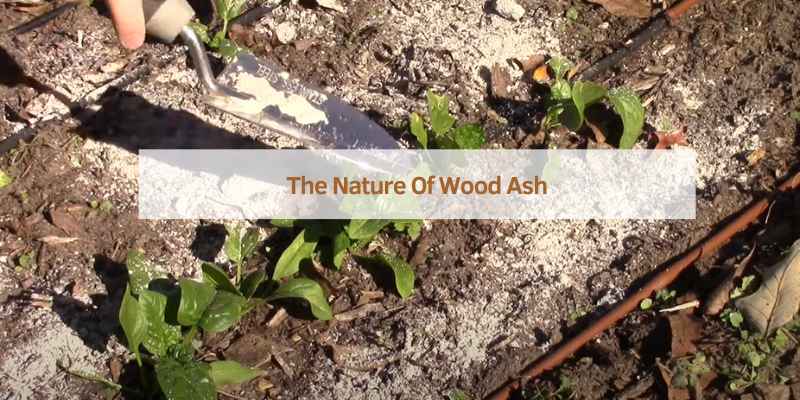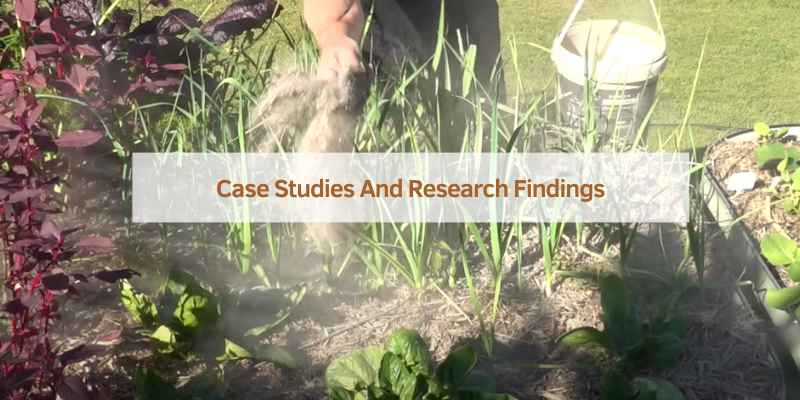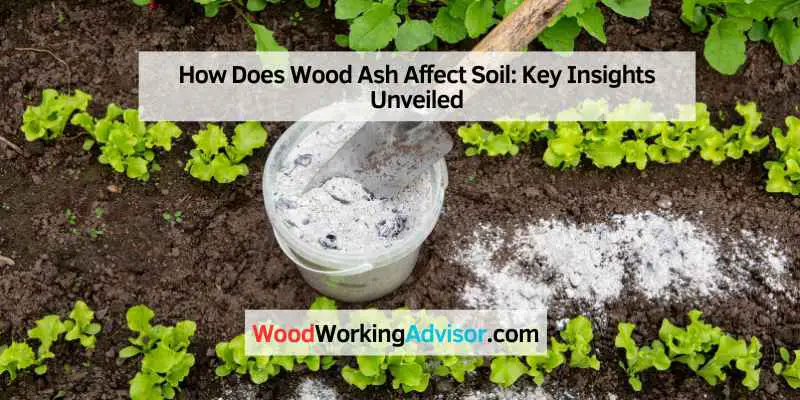Wood ash raises soil pH levels and enriches it with nutrients like potassium and calcium. It can improve soil structure and fertility.
Wood ash has long been used as a soil amendment, offering numerous benefits for gardeners and farmers. It contains essential nutrients that plants need for growth, such as potassium, calcium, and magnesium. These nutrients help improve soil fertility and enhance plant health.
Wood ash also acts as a liming agent, raising soil pH levels and reducing acidity. This is particularly beneficial for acidic soils, which can hinder plant growth. Proper application of wood ash can lead to healthier plants and better crop yields. However, excessive use can harm soil balance, so moderation is key. Always test your soil before applying wood ash to determine the appropriate amount needed.
The Nature Of Wood Ash
Wood ash contains many nutrients. These include calcium, potassium, and magnesium. These nutrients help plants grow. Wood ash is also alkaline. This means it can raise soil pH. It can help soils that are too acidic.
Wood ash is natural. Synthetic fertilizers are made in factories. Wood ash provides many nutrients. Synthetic fertilizers usually offer just a few. Wood ash improves soil structure. Synthetic fertilizers do not.

Historical Use In Agriculture
Wood ash enriches soil by providing essential nutrients like potassium and calcium. It also helps neutralize acidic soils, promoting healthier plant growth. This natural amendment has been historically valuable in sustainable agriculture.
Traditional Practices
Wood ash has been used for centuries in farming. Farmers sprinkled wood ash on fields. This helped improve soil health. The ash added nutrients like potassium. It also helped reduce soil acidity. Many crops grew better with wood ash. Farmers saw bigger harvests.
Transition To Modern Farming
Modern farming still uses wood ash. It is often mixed with compost. This helps balance the soil. Wood ash is a natural fertilizer. It is also eco-friendly. Modern farmers test the soil first. They add ash only if needed. This ensures the right balance of nutrients. Wood ash helps organic farmers too. It is a good alternative to chemical fertilizers.
Impact On Soil Ph Levels
Wood ash can help to neutralize acidic soils. It acts as a liming agent, which means it raises the pH level. This makes the soil less acidic and more suitable for plant growth. Many plants prefer a neutral to slightly alkaline soil. Wood ash adds calcium carbonate to the soil. This compound is effective in balancing pH levels. Adding wood ash can make plants healthier and more productive.
Neutralizing Acidic Soils
Using wood ash is a natural way to reduce soil acidity. It is rich in essential nutrients, such as potassium and phosphorus. These nutrients help improve soil quality. Before using wood ash, it is good to test your soil pH. This ensures you add the right amount of ash. Applying too much ash can make the soil too alkaline. This could harm certain plants. Always use wood ash sparingly and carefully.
Risks Of Overapplication
Overapplying wood ash can lead to several problems. It can make the soil too alkaline, which is harmful to plants. Excessive alkalinity can reduce nutrient availability in the soil. This means plants may not get the nutrients they need. Overapplication can also disrupt soil structure. This makes it harder for plants to grow. Always check soil pH before adding more ash. Use wood ash in moderate amounts to avoid these risks.
Nutrient Supply And Plant Health
Wood ash contains many useful minerals. It provides calcium, potassium, and magnesium. These minerals help plants grow strong. Calcium helps build strong cell walls. Potassium helps plants make fruit and flowers. Magnesium is important for photosynthesis. Wood ash also has small amounts of iron, zinc, and copper. These minerals are important for plant health. Using wood ash can improve soil quality.
Wood ash can raise soil pH. This can be a problem for acid-loving plants. Too much wood ash can harm soil. It can make the soil too alkaline. This can cause nutrient deficiencies. Plants may not get enough iron, zinc, or manganese. Wood ash lacks nitrogen. Plants need nitrogen to grow leaves. Too much wood ash can be harmful. Use it carefully and test the soil often.
Influence On Soil Microorganisms
Wood ash can be very good for soil bacteria. The ash adds important nutrients like calcium and potassium. These nutrients help bacteria grow. Healthy bacteria make the soil rich and good for plants. They break down organic matter. This process releases more nutrients. Ash also makes the soil less acidic. Bacteria prefer less acidic soil. Thus, wood ash promotes a healthy soil environment.
Too much wood ash can be a problem. It can make the soil too alkaline. This hurts the bacteria. Some bacteria cannot survive in very alkaline soil. Wood ash can also add too much salt. High salt levels harm beneficial bacteria. It’s important to use wood ash carefully. A little ash helps the soil. Too much ash can cause problems.
Environmental Considerations
Wood ash can be a sustainable soil amendment. It recycles nutrients back into the earth. Using wood ash reduces waste in landfills. This practice helps maintain a balanced ecosystem. Farmers and gardeners find it useful. It is a natural and eco-friendly option. Wood ash contains potassium and calcium. These elements are beneficial for plant growth. It also helps in neutralizing acidic soils. This can improve soil structure and fertility.
Proper application of wood ash is crucial. Too much wood ash can harm the soil. It may lead to heavy metal accumulation. This can be toxic to plants and animals. Always test soil pH before adding wood ash. This ensures balanced nutrient levels. Use only clean, untreated wood ash. Avoid ash from painted or treated wood. Such ash can contain harmful chemicals. This practice safeguards soil health and crop safety.
Practical Application Guidelines
Wood ash can improve soil quality. Too much ash can be harmful. Start with a small amount. Usually, one pound of ash per square yard is safe. Always test your soil before adding ash. Soil with high pH needs less ash. Sandy soil benefits more from wood ash. Clay soil needs less ash. Always mix ash well with the soil.
Apply ash in early spring or fall. This gives time for nutrients to mix. Avoid windy days to prevent ash from blowing away. Spread ash evenly over the soil. Use a rake to mix the ash. Water the soil after applying ash. This helps nutrients seep into the ground. Never apply ash directly to plants. It can burn leaves and roots.
Case Studies And Research Findings
Wood ash has shown great results in farming. Many farmers have used it to improve their soil. It helps in making the soil less acidic. This makes plants grow better. Some farmers saw a 20% increase in crop yield. Tomato and corn plants grew stronger and healthier. Soil pH levels improved greatly with wood ash use. It is a natural and cost-effective solution. Many farmers now prefer using wood ash.
Scientists are still studying wood ash. They want to know its long-term effects. They are looking into how it affects different soil types. New experiments are being conducted each year. Researchers are also testing how much ash is best to use. They are finding ways to make wood ash even more effective. Many universities are involved in this research. New findings are published regularly. This helps farmers use wood ash in the best way possible.

Frequently Asked Questions
Which Plants Do Not Like Wood Ash?
Plants like blueberries, azaleas, and rhododendrons dislike wood ash. They prefer acidic soil, while wood ash raises pH levels.
Are Wood Ashes Good For Soil?
Yes, wood ashes enrich soil with potassium and phosphorus. Use them sparingly to avoid raising soil pH too much.
Should I Put Fireplace Ashes In My Garden?
Yes, you can use fireplace ashes in your garden. They add valuable nutrients like potassium and calcium. Avoid using too much, as it can alter soil pH. Ensure ashes are from untreated wood and fully cooled before application.
Do Hydrangeas Like Wood Ash?
Hydrangeas prefer slightly acidic soil. Wood ash can raise soil pH, making it less suitable for hydrangeas. Use sparingly.
Conclusion
Wood ash can significantly enhance soil quality when used correctly. It boosts pH levels and adds essential nutrients. Always test your soil before applying wood ash. This ensures you use the right amount. With careful use, wood ash can be a valuable addition to your gardening toolkit.
Happy gardening!


